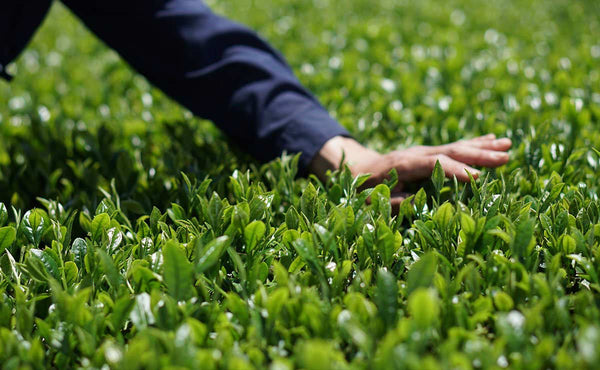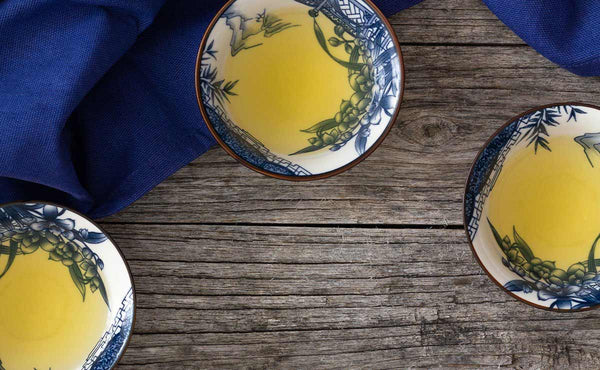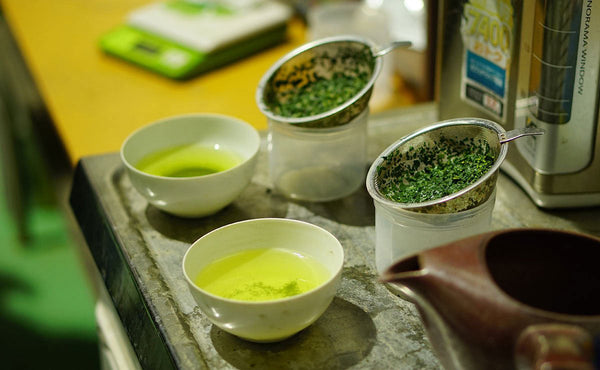
The demand for food safety and quality is no new issue. The U.S. Department of Agriculture (USDA), the U.S. federal executive department that oversees the American farming industry, has been around for more than 150 years. One of its many responsibilities is ensuring food safety for consumers, but it also aims to help rural America to thrive and preserve the U.S.’s natural resources. When it comes to products like organic matcha green tea powder, the USDA organic seal guarantees that the product was grown and has been processed “according to federal guidelines addressing, among many factors, soil quality… pest and weed control, and the use of additives.” Certified USDA seal on organic tea assures customers that it is verified organic every step of the way.
As far as certified organic matcha green tea powder goes, the U.S. has an organic equivalency arrangement with Japan where certified organic products from both countries may be sold as organic in either country. But first, let's understand what is the equivalent USDA seal in Japan and how it works.

The Japanese Agricultural Standard (JAS) is maintained by the Japanese government; it includes standards for quality and production methods that are provided for foods, beverages (not including alcohol), and forestry products. JAS Certification ensures the quality of the products; products are determined JAS organic by a variety of certified third-party producers, manufacturers, distributors, or importers. The JAS organic seal ensures food safety with the highest Japanese certification standards, giving consumers confidence.
In 2000, the JAS Standards for organic plants and organic processed foods of plant origin (including organic matcha green tea powder!) were established with the Guidelines for the Production, Processing, Labeling, and Marketing of Organically Produced Foods which were adopted by the Codex Alimentarius Commission. Producers certified by registered overseas certifying bodies can use the organic JAS certified logo on their products that have been produced or manufactured in accordance with relevant organic JAS Standards. Some of these standards prohibit agricultural chemicals and fertilizers, request the non-use of recombinant DNA technology, and list the criteria for exercising the productivity of the soil and the cultivation method to minimize load to the environment, among others.

As of January 1, 2014, the U.S. and Japan have an equivalence agreement which means that certified organic operations in both countries may sell their products as organic in Japan and the U.S. as long as the terms of the arrangement are met. These products must meet USDA organic standards as well as Japanese organic labeling requirements (including the JAS certification seal). They must comply with the Japanese Ministry of Agriculture, Forestry, and Fisheries requirements for the use of the JAS seal. In Japan, only products with 95% or more organic content may be labeled as certified JAS organic, unlike “made with organic” labels that may be found under the USDA seal. There are no 100% organic labels under JAS certification as there are in the U.S., as all products that are JAS certified must be over 95% organic.

To ensure the reliability of JAS marks, the JAS certification system is done through Registered Certifying Bodies (RCB’s), a third party organization. Certifying bodies from any country are able to apply for the status of Registered Overseas Certifying Bodies. The application process is easy and has four basic steps:
Keicha is proud to produce JAS organic certified tea and organic matcha green tea powder. Our ceremonial grade matcha not only complies with JAS organic standards, but we also hold other certifications such as OU Kosher, USDA Organic, FSSC Certification, Non-GMO Project Verified, and Certified Gluten-Free. If you want to know more about our commitment to high-quality organic matcha green tea powder, check out our Manufacturing page where you can learn all about Gluten-Free Matcha. FSSC 22000, and other industry leading certifications.